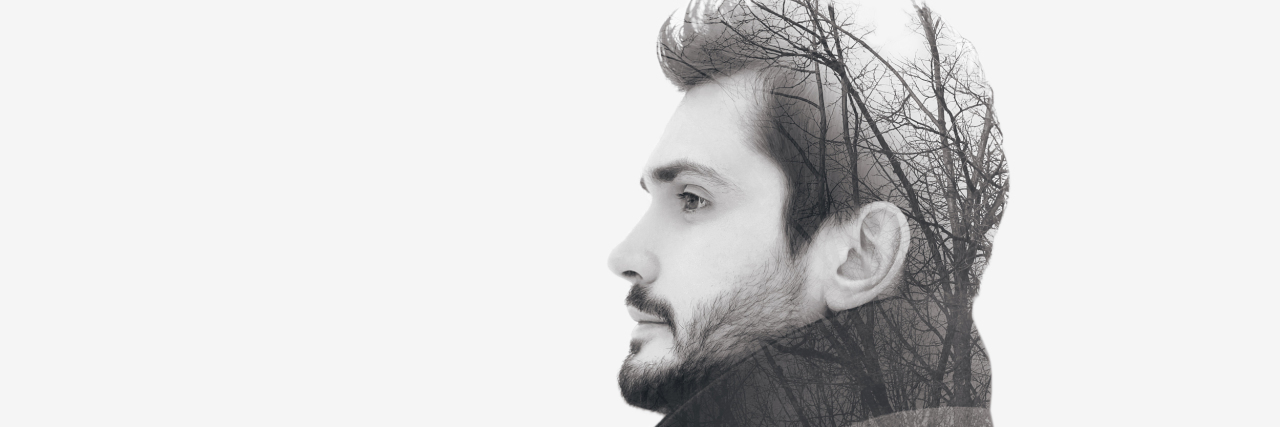When dealing with any mental disorder, especially obsessive compulsive disorder (OCD), judgment can often be something our brains take very seriously. We process this from many vectors, primarily the judgment of others and judgment from ourselves.
Sometimes, mental health can get worse with each judgment. They very rarely have a positive side that outweighs the negative effects. In my experience, many people judge for negative reasons.
The rabbit hole exists when this judgment is taken completely at face value with no caveats added. The more we’re told (or we tell ourselves) that we’re doing negative things because of our OCD, the more our OCD symptoms present themselves. This is (part of) the OCD spiral. The snake eating its tail, all of those clichés.
There is one big difference between the judgment of others and the judgment from ourselves. The former is subjective and the latter is primarily objective. At least the brain absorbs it as such.
Other people judge us based on more limited information about what is going on inside our brains (naturally), and thus offer opinions based on the subject matter surrounding us that both parties can see.
Our judgment of ourselves, while not infallible, is more objective. We can always look at ourselves more holistically because we are inside our brains. This is not to say mental disorders like OCD don’t cloud our perception of ourselves. But our judgment always has an advantage over others.
Now how much of this can we control? We know we can’t control others, for the most part. Depending on how close we are to someone and the power of the dynamic between us and the other person, we may be able to ask for the judgment to dampen or stop. However, this rarely happens. People with OCD often tend to have a sixth sense for judgment (incorrect or correct, it is frequently a mixture of both). We often tend to finish the unsaid sentences of others.
But we can often control ourselves, somewhat. This is something we need to exercise, something we need to build into our daily thought process (often by a process of removal).
I’ll give a personal example of the OCD rabbit hole. At one time, I was obsessed with waking up around 7:30 a.m. I felt I was failing myself and the world I live in by waking up any later. I was operating off guilt formed by a silent judgment that people who wake up later are lazy. I placed this judgment in the mouths of others (they didn’t say this directly). But what I was doing was judging myself.
Oh and I did!
I went as far as forming compulsions involving writing dictums on sticky notes to, “Wake up at 7:30!!!” I don’t even use multiple exclamation points in any communication! But I did so to try to jolt myself out of bed when the alarm went off.
I was also going through a lot of anxiety and possibly depression at the time because my OCD was overwhelming (and other life stuff). This generally causes me to not want to take on the world and lie in bed for longer than I feel is right.
So when I did wake up at 8 a.m. (a whole thirty minutes late), I was so tremendously angry at myself that I spent the rest of the day (no hyperbole, literally the rest of the waking day) angry to the point of hurting myself because I got up late. I could go through all of the thoughts but the key takeaway here is this hurt me more than it helped me. This was not self-discipline, this was irrational and draconian punishment.
The key here to start helping yourself avoid the OCD rabbit hole is:
Don’t get angry at yourself.
You are the only one who can judge yourself with objectiveness. Regardless of how well your brain is or is not working, you can start with accepting whatever you’re doing as OK.
Don’t get angry at yourself. Let your brain do whatever it wants, free from the wrath of punishment. You can’t stop judging yourself, you can’t stop observing yourself as if you were a third person. This is a part of OCD that does not go away.
But you can stop being angry at yourself for having OCD, anxiety and/or depression. This is OK. It is OK to act on these symptoms or disorders.
It is OK to stay asleep if you are suffering. It is OK to have compulsions if you are in an OCD episode. This is primary. You can work on these things later. But first, accept yourself at the moment. Who you are right now. You are OK.
As cheesy as this sounds, it is something people with OCD are often reluctant to do because we spend a massive amount of energy analyzing ourselves from the outside looking in. And that is fine. Just don’t get angry, don’t punish yourself. Leave that to others.
Maybe I’ll get into dealing with others in this area at another time. But for now, don’t be like them. You are you and you get to decide on your judgment of yourself. You are the judge and jury. So cheat! Let yourself free, regardless of the evidence you’ve stacked against yourself.
Don’t get angry at yourself.
Getty Images: Guasor

